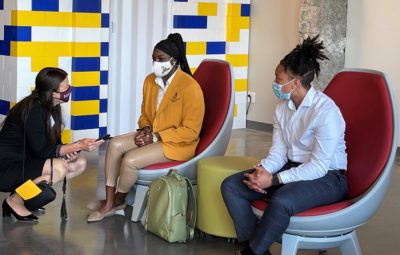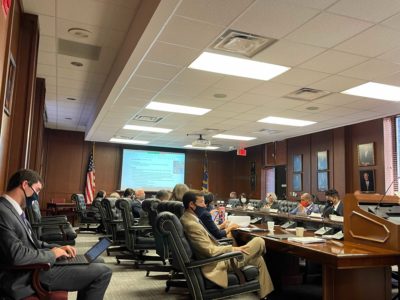
Over the past several years, districts throughout North Carolina have opened virtual schools to provide educational options for students and their families. Various models have emerged based on the needs of each unique community.
In some cases, virtual schools provide diverse course offerings in districts with limited in-person instruction. In other areas, these virtual schools are the direct result of students and parents preferring a highly personalized, flexible environment over traditional schooling. While some of these schools are primarily asynchronous, others are a mix of synchronous and asynchronous virtual instruction, while still more are blended online and face-to-face experiences. To add another layer of variation between districts, these virtual schools differ in terms of their curriculum; they are creating their own, partnering with external organizations to use theirs, or relying primarily on NC Virtual Public School (NCVirtual).
New support model
Following the onset of the pandemic, there was a sharp spike in newly opened virtual schools across the state. Although each of the schools have different distinct challenges, school leaders have expressed needs relating to human resources, personalized learning, parent/community engagement, technology/space and curriculum.
In an effort to help identify and support critical needs surrounding the various virtual learning environments, the Friday Institute for Educational Innovation at NC State University and NC Virtual Public School have partnered to develop and implement a Virtual Schools Network (VSN) focused on connecting local traditional virtual public schools. The network is being designed in a responsive, innovative, and sustainable manner to ensure the needs of stakeholders are paramount.
On March 10, we invited a small group of educators from nine local traditional virtual public schools to attend a one-day convening to explore ways on how we might design a statewide network of leaders and stakeholders committed to transforming teaching and learning by reimagining how learners navigate space and place. Each school that was invited brought a design team of four individuals: a principal/program director, a teacher, a guidance counselor or other support staff member, and a district administrator.
During this initial convening, we explored the following design challenge statement: How might we create an innovative network designed to meet the unique needs of educators at virtual schools?
The network’s fundamentals — and a summer opportunity
There are several key focuses of the network:
Strategic partnerships
The Friday Institute and NCVirtual are building off the strengths of each organization to gain a deeper understanding of the current status of virtual schools, the needs they have shared, and the resources already available. Additional partners will be brought on board as the network develops.
Design principles
The partnership team will co-create VSN design principles from feedback obtained from a stakeholder feedback group. This will generate a common language for network members to plan, reflect, and vision together. Knowing that the schools are in different places, these design principles could serve as a continuum/reflective tool to help usher virtual schools toward being more innovative, equitable, and sustainable.
Overcoming barriers
Virtual schools often face the same challenges and barriers during the start-up period. The VSN will develop strategies for addressing staffing issues, creating professional development, designing quality courses, assessing technology needs, establishing support structures, scaling for size, and planning for sustainability.
Summer institute
This June, our first-ever Summer Institute (SI) invites school teams to a two-day convening (June 28-29) at the Friday Institute in Raleigh, North Carolina, to celebrate our 2022-23 VSN launch. Attending leadership teams will engage in capacity building and opportunities to shape the vision of the VSN network in order to meet the realities of educators in local traditional virtual public schools. Participants will have the opportunity to grow in their own leadership and, as a team, learn and network with job-alike leaders from other schools across the region and/or state.
Not only will this network create the space for schools to learn with and from one another, it has the potential to identify centers of excellence, communicate themes/patterns across the state, and advocate for the unique needs of traditional virtual public schools in North Carolina.
If your school is interested in being part of this innovative network, we invite you to register for VSN’s 2022 Summer Institute. The cost is $1,000 per team. Participants will receive a certificate of completion on day two of the event that they may submit for local CEUs. Space is limited. Please go here for more information.





